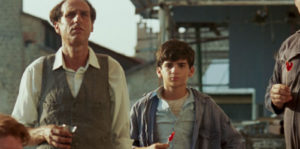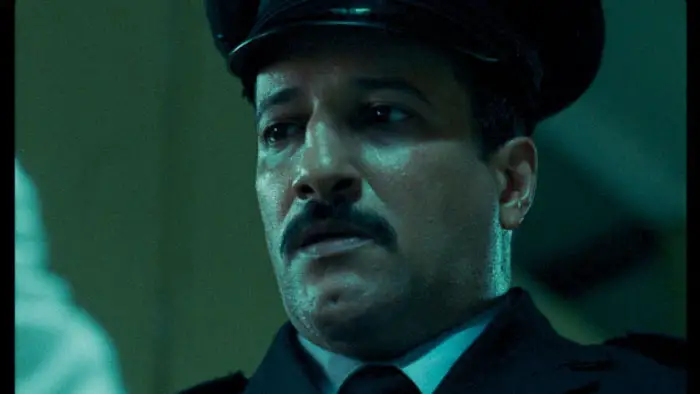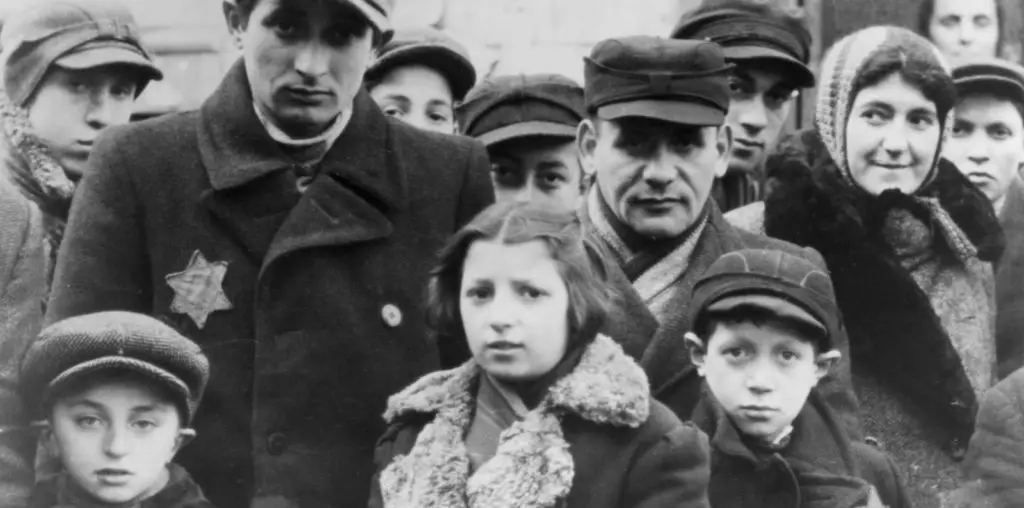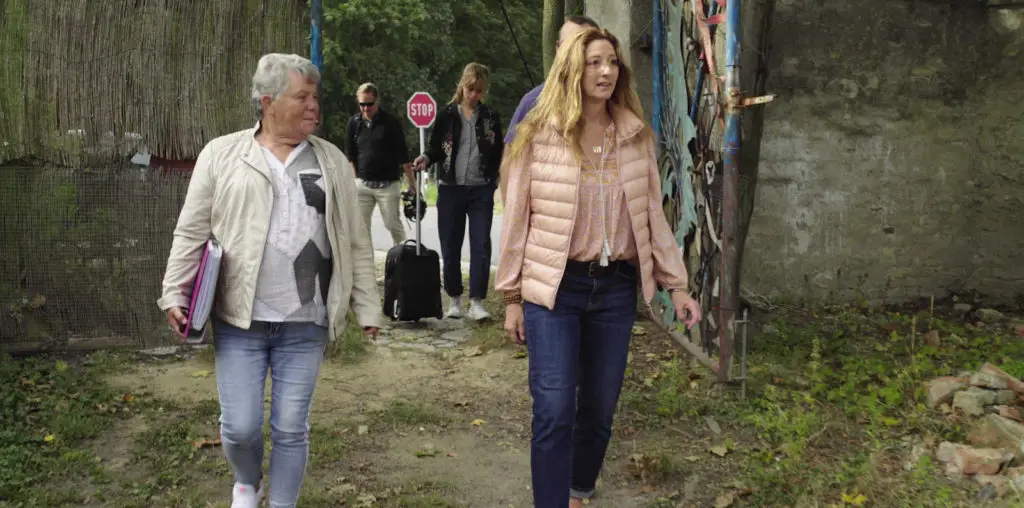
In June Zero, co-writer/director Jake Paltrow shines a light on events around the 1962 trial and execution of Adolf Eichmann. Eichmann was Hitler’s logistics expert who organized much of the holocaust, including a dedicated effort to ensure the trains taking prisoners to concentration camps were timely and reliable. After the war, he fled to Argentina, was eventually tracked down, arrested, and taken to Israel to stand trial. He was executed in May of 1962. Paltrow’s ambitious dramatization follows the activity and lives of people tangentially related to Eichmann’s trial and his death. The viewer engages with these events through the eyes of three characters.
Haim (Yoav Levi) is a corrections official assigned to be Eichmann’s guard. His mandate is to keep the prisoner alive and treated humanely until he’s hanged. Day-to-day life with Eichmann in custody has a commonplace atmosphere, with the time spooling out quietly. Haim sweats it out, however, not wanting to be noted by history as the official who mistreated an important prisoner. At one point, Haim is injured in a car accident but comes to work anyway. His injuries are so obvious that even Eichmann comments that he thinks Haim should go see a doctor.

“…lives of people tangentially related to Eichmann’s trial…”
The second perspective June Zero follows is that of Mischa (Tom Hagy), who is a holocaust survivor of the camps himself. He’s working in Poland investigating Eichmann’s crimes and winds up visiting the ghetto where he was during the war before being taken to a camp. Having been asked by the Israeli commission to recount his story to tourists, he becomes something of a show pony in the process. He’s approached by a member of the commission, played by Joy Rieger, who is offended by his being trotted out for tourists. She suggests that his performances may cheapen the memory of the holocaust through sensationalism and repetition. She wonders if he feels humiliated by it.
Back in Israel, preparations are made for Eichmann’s execution. The third and primary point of view in the film is provided by a teen Arab-Jewish Libyan immigrant named David (Noam Ovadia). He is fearless and undisciplined, and when he’s thrown out of school for bad behavior, his father gets him a job at a nearby factory. Despite being only 13, David proves to be resourceful, bright, and energetic. He becomes a key player when the factory is asked to build a mobile cremation device for Eichmann’s body. His story is told not as a solemn recounting of history but rather in the tone of a rough-and-tumble rite of passage. One doesn’t expect zany teen hi-jinks in a film about a Nazi war criminal, but here we are. Whether all this works in one film is questionable. Each of the threads is compelling, but inter-cutting between them is jarring. Alternatively, any one of these stories could have been elaborated standalone into an entire film.

"…a worthy film..."


